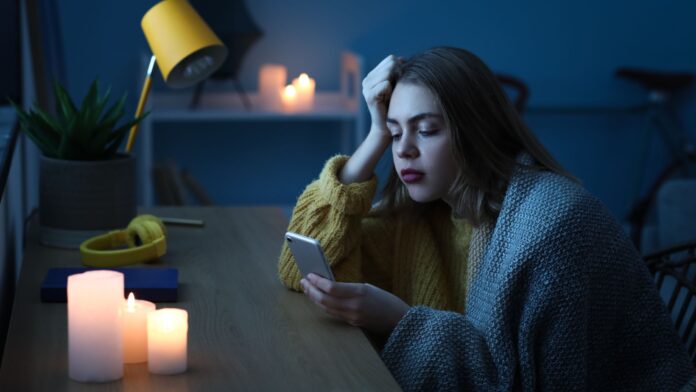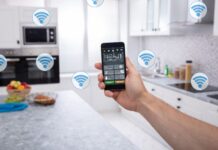Before electricity became a cornerstone of modern life, people relied on natural resources and manual ingenuity to survive and thrive. Fireplaces provided heat and light; candles and oil lamps illuminated homes; food preservation was achieved through salting, drying, or storing in cool cellars. Communication and entertainment often revolved around storytelling, music, or communal gatherings. These skills and practices, though seemingly outdated, offer valuable lessons for navigating life without power in emergencies.
By understanding these principles and preparing thoughtfully, we can better handle temporary disruptions to the electric grid.
What to Do When the Power Goes Out
When the lights go out at my house there is a general feeling of “well, what do we do now”. We have become so reliant on our comfort, entertainment, and work all revolving around electricity that even a flicker of the lights can send a bit of panic through our bodies. Here’s a practical checklist of what to do immediately after losing power:
Step 1: Assess the Situation
- Check for Localized Issues:
- Look outside to see if your neighbors’ homes also lack power.
- Check your circuit breaker to ensure the outage isn’t a household-specific issue.
- Contact Your Utility Provider:
- Report the outage and check for updates on restoration times. While this may seem trivial, the more reports, the quicker they get people to those areas to get the problems resolved.
- Many providers have apps or text services for real-time updates.
To report a power outage to The Illuminating Company in Ohio, you have several options:
- Online Reporting: Visit their Report Power Outage page to submit an outage report.
- Phone: Call 1-888-LIGHTSS (1-888-544-4877) to report an outage. FirstEnergy Corp
- Text Message: If you’re enrolled in their text messaging service, text “OUT” to 544487 (LIGHTS) to report an outage. To register for this service, text “REG” to 544487.
Step 2: Prioritize Safety
- Unplug Electronics:
When the power goes out, it might seem unnecessary to unplug your electronics, but doing so is essential for protecting them. Power outages can often lead to power surges, which occur when electrical voltage spikes beyond normal levels. These surges are especially common when electricity is restored, during lightning storms, or due to faults in the power grid. While power surges can be minor, they can also be severe enough to overwhelm electrical systems in your home. The damage from surges can range from fried circuits that render devices unusable to gradual wear on internal components, shortening their lifespan. In the case of computers or storage devices, power surges can lead to data loss or corruption.
Surge protectors are designed to mitigate this risk by absorbing excess voltage and redirecting it away from your devices. However, not all surge protectors are created equal. Cheaper models, often mistaken for simple power strips, may not provide sufficient protection against significant surges. High-quality surge protectors, especially those with a high joule rating, are far more effective and should include indicator lights to show whether their protection is still active. However, even the best surge protectors have limits. Large surges, such as those caused by lightning strikes, can overwhelm them entirely. For this reason, unplugging electronics during a severe storm or unpredictable outage remains the safest option.
Simply turning off a surge protector isn’t enough to guarantee protection. A surge protector must be unplugged from the wall to fully disconnect from the power source, as switching it off does not stop surges from potentially passing through. While relying on a surge protector for convenience is tempting, especially to avoid the hassle of unplugging everything, it’s important to recognize that unplugging offers the most complete safety. For devices that you choose to leave plugged in, make sure they’re connected to a high-quality surge protector, ideally one that is replaced every few years or after a significant power surge event.
One common concern about unplugging everything is not knowing when the power comes back on. To address this, you can leave one low-risk device, like a lamp, plugged in to act as an indicator. Alternatively, use a battery-powered radio or check online updates through your phone to monitor power restoration progress. Once power returns, reconnect your devices gradually to avoid overloading circuits all at once. - Avoid Open Flames:
Using candles during a power outage is a natural choice for many, as they have been relied upon for centuries to provide light in the absence of electricity. However, while candles are effective, they also pose significant risks that shouldn’t be overlooked. The primary concern is fire safety. Open flames, such as those from candles, are one of the leading causes of residential fires, especially during emergencies when people are distracted or conditions are less controlled. During a power outage, it’s easy to place a candle on an unstable surface or leave it unattended, both of which can quickly lead to disaster if the flame ignites nearby flammable materials like curtains, papers, or furniture.
Another critical consideration is that modern homes are often filled with synthetic materials that burn much faster and produce toxic fumes when ignited. A single candle tipping over can escalate into a dangerous situation in moments. While people historically used candles for light, it’s worth noting that homes in earlier times were built differently, with fewer synthetic materials and often more open layouts that allowed for better ventilation and safer flame use. Today’s tightly insulated homes make fire from a candle even more hazardous, as the spread can be accelerated. - Preserve Food:
- Keep refrigerator and freezer doors closed to maintain cold temperatures.
- Use a thermometer to monitor food safety if the outage is prolonged.
Step 3: Conserve Power on Battery-Operated Devices
- Use your phone sparingly to preserve battery life. I know… what else is there to do if you don’t have power? Just remember you may need it to make an emergency call or as a flashlight, so try to use it sparingly.
- Consider investing in portable chargers or solar-powered options for emergency use. If you do, make sure they are charged up and ready to go.
Preparing for a Power Outage During Storms
Anticipating a power outage due to storms or other events can help reduce stress and ensure you’re ready. Here’s what to do before a storm hits:
Emergency Kit Checklist
- Lighting: Flashlights, lanterns, and extra batteries.
- Backup Power: Fully charged portable power banks or a generator.
- Food and Water:
- Non-perishable food items and manual can opener.
- At least one gallon of water per person per day.
- Communication: A battery-powered or hand-crank radio for weather updates.
- First Aid: A fully stocked first-aid kit.
- Heating and Cooling: Blankets for winter or fans for summer (battery or solar-powered).
- Personal Care: Wet wipes, garbage bags, and hygiene items.
- Entertainment: Books, games, or puzzles to pass the time.
Household Preparations
- Charge Devices: Fully charge all phones, tablets, and power banks.
- Secure Property: Bring in outdoor furniture and secure loose items to prevent damage.
- Test Equipment: Ensure flashlights, radios, and generators are in working order.
- Fuel: Fill up your gas tank and ensure you have propane or fuel for generators.
- Emergency Plan: Establish a communication plan with family and ensure everyone knows the location of emergency supplies.
- Clear Paths: If you don’t have lights, its easy to run into things. Make sure that you have minimal things on the floor and clear paths to all the major traffic areas of the home.
Surviving Winter Power Outages
Winter outages pose unique challenges, particularly in maintaining warmth and preventing freezing conditions indoors. While it can give you a real appreciation for how people survived all the years before us, it is best to make sure you are prepared as they would have been.
Staying Warm
- Layer Up:
- Wear multiple layers of clothing, including hats and gloves, to retain body heat.
- Create a Warm Zone:
- Focus heating efforts on one room by closing doors and windows.
- Use blankets to insulate windows and block drafts.
- Alternative Heating:
- Use a wood-burning stove or fireplace if available, but ensure proper ventilation.
- NEVER use gas stoves, ovens, or grills indoors to avoid carbon monoxide poisoning.
Food and Water Concerns
- Store water in insulated containers to prevent freezing.
- Keep a supply of high-calorie, non-perishable foods for energy.
Preventing Pipe Freezing
- Open cabinet doors to expose plumbing to household warmth.
- Allow faucets to drip slightly to keep water moving and reduce freezing risk.
Surviving Summer Power Outages
Summer outages bring concerns about heat and food spoilage.
Keeping Cool
- Limit Activity:
- Reduce physical exertion to prevent overheating.
- Seek Shade:
- Spend time in cooler parts of the house or outdoors in shaded areas.
- Hydrate:
- Drink plenty of water, even if you’re not feeling thirsty.
- DIY Cooling Solutions:
- Wet a cloth with cold water and place it on your neck or wrists for instant relief.
Food Safety
- Freeze water bottles in advance to keep food cool in the fridge or use them as drinking water when thawed.
- Monitor perishable foods for signs of spoilage if temperatures rise too much.
General Tips for Comfort and Survival
- Light:
- Keep multiple light sources in accessible locations around the home.
- Use headlamps for hands-free illumination.
- Entertainment:
- Stock up on non-electronic activities like board games, card games, and books.
- Communication:
- Keep a landline or battery-operated phone if cell service becomes unreliable.
- Health:
- Store medications in a cool, dry place. Consult your pharmacist if refrigeration is required.
How to Adapt Lessons from the Past
By adopting simple, timeless strategies, we can become more resilient during power outages:
- Use natural light during the day by opening windows or positioning mirrors.
- Rely on manual tools like hand-crank radios or non-electric kitchen gadgets.
- Embrace slower-paced, communal activities like storytelling or playing games.
Power outages remind us of the conveniences we often take for granted and the importance of preparation. With foresight and a practical plan, you can handle these situations with confidence and comfort, no matter the season.










